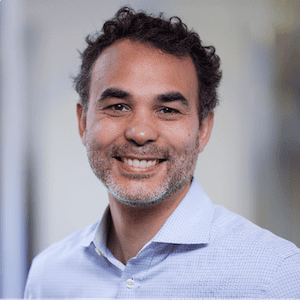-
Key Strategies for ‘Social Startup Success’: A Q&A with Spark Co-founder Kathleen Kelly Janus
The nonprofit funding wall is real, says Kathleen Kelly Janus, leaving two-thirds of U.S. nonprofits at $500,000 and below in revenue. In “Social Startup Success: How the Best Nonprofits Launch, Scale Up and Make a Difference,” she explores how some social ventures are able to break through and scale, and shares lessons that are relevant to both nonprofit and for-profit enterprises. NextBillion editor Sonya Vann DeLoach discusses the book’s message with the author in this thought-provoking Q&A.
- Categories
- Social Enterprise
- Tags
- nonprofits
-
Seeing Beyond Silos: A More Holistic Approach to Supporting Social Entrepreneurs
If it takes a village to raise a child, then it takes an entire ecosystem to shepherd a social enterprise from inception to scale. But that ecosystem too often is splintered with investors, accelerators and other advisors sorting themselves into silos. Alex Pan and Mark Correnti, with the Miller Center for Social Entrepreneurship, advocate for a "structured collaboration," with accelerators taking the lead as honest brokers.
- Categories
- Impact Assessment, Investing, Social Enterprise
-
Different Disasters, Same Solution? Applying New Orleans’ Post-Hurricane Model to Revive Detroit’s Neighborhoods
Hurricane Katrina's fury struck New Orleans over the course of hours while relentless economic stagnation plagued Detroit for decades. But these very different challenges created similar outcomes: huge population losses, real estate foreclosures and economic devastation. On Martin Luther King Day, NextBillion is focusing on domestic economic issues and urban renewal. Develop Detroit's Sean White explains how the real estate development firm is applying the Crescent City's formula for rebirth to the Motor City's ongoing neighborhood revival.
- Categories
- Investing
-
Featured Event: NB Readers Get Discount Tickets to The Economist’s Investing for Impact
Will impact investing stay on the sidelines or become a main stage player for global change? Join editors of The Economist and 200 financiers, institutional investors, policymakers, academics, impact investors and philanthropists at "Investing for Impact: Risk, return and the future of the world." NextBillion readers get 15 percent off tickets for the Feb. 15 gathering in New York City by registering with our discount code.
- Categories
- Investing
- Tags
- impact investing
-
Helping Low-Income Patients Breathe Easier: Three Solutions to Oxygen Market Failures
For a child with severe pneumonia—and every other patient struggling for breath—access to oxygen is a matter of life or death. And even though oxygen is just as important to hospitals and clinics as electricity and water, market failures stand between oxygen and the people who need it. While medicines and vaccines are its primary focus, the global NGO PATH recently zeroed in on how to improve oxygen supplies in low- and middle-income countries.
- Categories
- Health Care
-
Rethinking Food Security By Re-inventing the Cold Storage Chain
In developing countries, 40 percent of food losses occur after harvest and early on in the supply chain, leading to more than 250 million tons of food waste annually — mostly because of inadequate refrigeration and unreliable and expensive energy supply. Paula Rodriguez at InspiraFarms discusses the problem – and the company's innovative solution.
- Categories
- Agriculture, Technology
-
The Under-Recognized Threat of ‘Ultra-Poverty’ – And How the World Can Tackle It
The world is likely to fall short of Sustainable Development Goal 1 to end poverty in all its forms everywhere by 2030 – unless it addresses the estimated 394 million people living in “ultra-poverty.” Concentrated in 14 countries in Africa and Asia, the ultra-poor have largely been overlooked by the movement to end poverty, receiving a small fraction of official development assistance. The Global State of Ultra Poverty report aims to change that, and Jesse Marsden, Veronica Brown and Aaron Merchen of RESULTS explore strategies that could turn the tide.
- Categories
- Impact Assessment
-
From Haiti to China: 5 Pilots Begin to Reveal Digital Credit’s Uneven Impact
Demand for digital credit is growing in emerging markets, sparking opportunities for providers – and critical questions about its impact on low-income borrowers. CEGA's Digital Credit Observatory awarded five short-term pilot grants to studies in Haiti, the Dominican Republic, India and China, which provided some intriguing answers. Alexandra Wall, Natasha Beale and Carson Christiano of CEGA explore some of the studies' takeaways.
- Categories
- Finance, Impact Assessment










